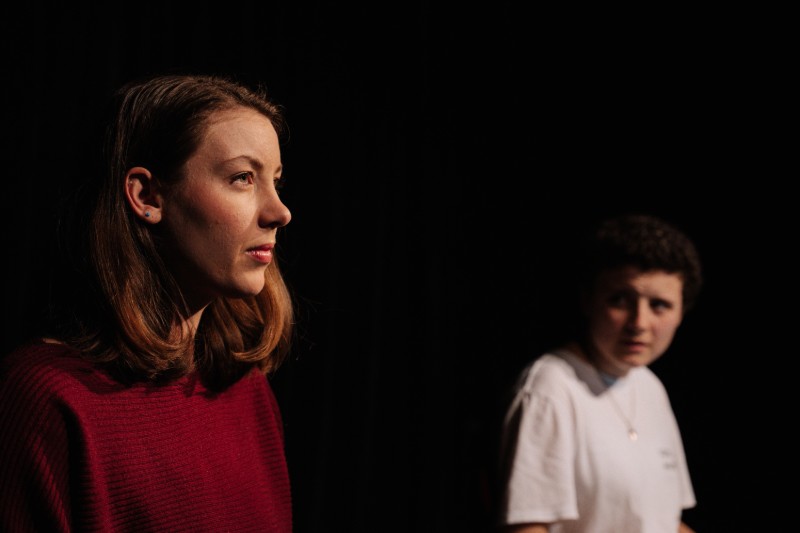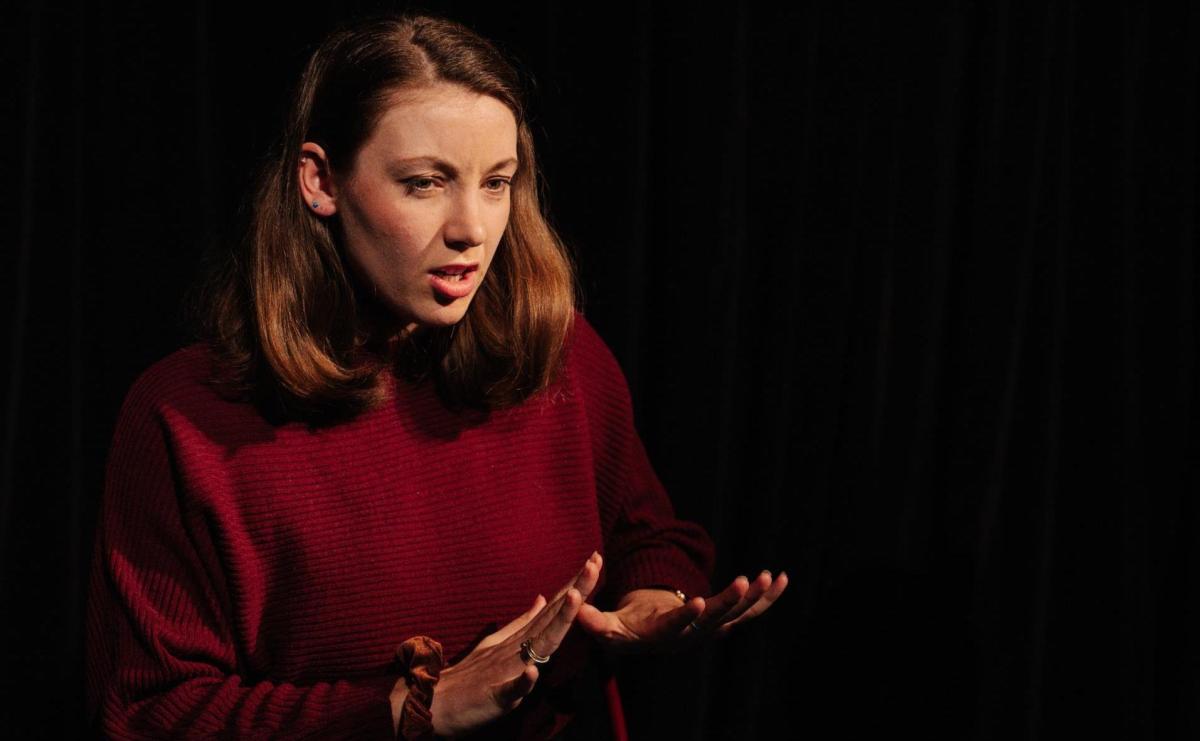15 March 2020. The last day of shaking hands and going to the theatre. It was a Sunday, and the closing night of the show I was in at the Adelaide Festival. We’d all had work vanish overnight with no certainty when we would next be in a rehearsal room or on a stage. I felt incredibly lucky as I stepped into the theatre for the final time and strode through the darkness of the Queen’s Theatre to my place, ready to tell the story for the last time. It felt incredibly precious, and I think the whole cast felt it, the privilege of being actors in a theatre while outside the world teetered on a precipice.
Overnight, I lost six months of acting work. By the following week it was nine months.
As an actor with chronic pain, losing an acting gig is more than just losing income for me. I have Endometriosis, a disease which has ravaged my pelvis with cysts and adhesions, literally gluing organs together. The only time in my life that I am not in pain is when I’m performing. My usual post-show blues were compounded by the prospect of being in daily agony for months without the respite provided by performance.
Across the state, the country, and the world, we went into varying degrees of lockdown and unfamiliar terms like social distancing and self-isolation became everyday vocabulary. I finally had a word for what my disability frequently has imposed upon me for the last few years! During my flare ups I have been self-isolating: trapped in bed or on the couch with excruciating pain and a myriad of unpleasant, debilitating symptoms, for weeks, with no end in sight, without sourdough recipes or the unity of colleagues, neighbours, and friends who are also self-isolating.
An avid theatregoer, I have missed countless shows because I was self-isolating due to a flare up. That’s a piece of our theatre history I missed, laughter, tears, revelations missed, conversations I continue to be left out of – having missed Mr Burns in 2018 because I was in a flare up and self-isolating in bed continues to haunt me!
I haven’t seen so much theatre at any other time of my life as I have during the Covid-19 lockdown.

Jamila Main & Audrey Mason-Hyde in How To Eat Rabbit, performed during lockdown. Photo: Lily Drummond.
Before my disability locked me out of theatre, it was living far away and being unable to afford the ticket price that excluded me from seeing as much live art as I wanted.
During lockdown, the UK’s National Theatre released 16 plays for free on YouTube which were viewed almost 15 million times in 173 countries. Millions have watched Hamilton on Disney+. State Theatre Company SA, ActNow Theatre, Griffin, Malthouse, and Little Ones are among the theatre companies who have produced original digital theatre or streamed existing recordings of their work during the lockdown of 2020. Because of this I have been able to see shows I’ve fangirled over from afar, been exposed to new artists, new ideas, new ways of telling stories. I have felt a part of the conversation, not apart from it. Myself and countless other people who have previously been unable to attend theatre IRL have been celebrating this unprecedented inclusion and access to contemporary theatre.
Theatre moving into an online space has also meant I have been able to perform and access rare pain-free states during lockdown, whether it’s performing my work on Instagram Live or in livestreamed readings of new plays. It’s meant my family and friends living all over the world can see my work; for some it’s the first and only time they’ve seen me perform. I am so grateful to have had opportunities to remain connected to theatre from the comfort of my home.
Conversely, my newsfeed is occupied by abled theatre-makers and audiences lamenting the loss of live theatre and decrying digital theatre as a lacklustre placeholder.
I miss watching live theatre too, but it is a privilege to dismiss online theatre, to declare that ‘live-streamed theatre just isn’t the same’. It’s not the same, but it’s better than nothing and you need to check your abled privilege with your coat as they pour your wine into a plastic cup the next time you’re at the theatre.
I miss watching live theatre too, but it is a privilege to dismiss online theatre, to declare that ‘live-streamed theatre just isn’t the same’.
No glass in the theatre. No people with disabilities in the theatre. No access requirements met in the theatre. Theatre remains an exclusive club for the able bodied, both to access as an audience member and a performer.
I wish it had been trendy or deemed necessary to livestream theatre before a pandemic saw abled people join us in isolation. I wish that it will be trendy or deemed necessary to livestream theatre after isolation ends for the abled community, but I have serious doubts. I had hoped that if the abled population experienced the frustrations, loneliness, and denial of accessing the events you want during lockdown, they would be considerate of those of us who were isolating pre-COVID and will continue to isolate post-COVID. But I’m not sure they even know we’re here.
In Adelaide, our city is opening up. Already the Zoom meetings are swapped for IRL meetings, and live performances happen without an online presentation. I don’t want to go back to a theatre ecology where we abandon our isolated audiences. I want a chance to experience the laughter, tears, and revelations of theatre; I want to make theatre that can be shared with the at-home audience too.
We are on the precipice. Right now, we have a chance to create a more inclusive theatre going forwards. A theatre that not only can be watched by disabled audiences, online and IRL, but where disabled stories take place on the mainstage, where disabled characters are onstage, played by disabled actors, and written by disabled playwrights.
Don’t stop live-streaming. Don’t stop filming theatre and uploading it. Don’t do it for the abled critic who turns up their nose and declares it Not Real Theatre™️. Do it for the thousands of people who can’t come to your theatre IRL. Expand your audience. Extend your community. Keep awkwardly waving goodbye on Zoom.





